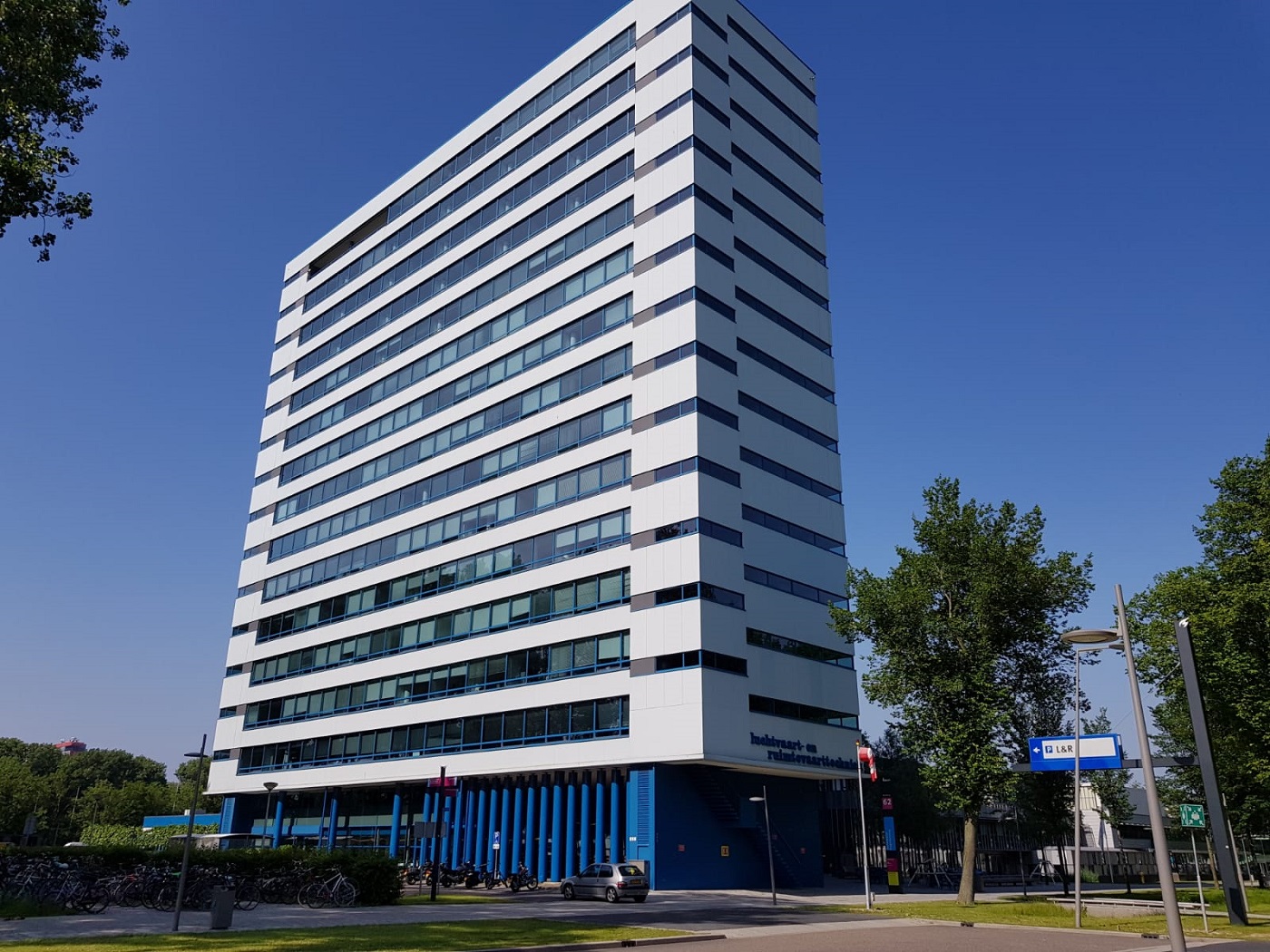The Dutch government ordered more stringent monitoring of students and scientists from Iran with immediate effect. The catalyst for this is an Iranian student at TU Delft.
The Faculty of Aerospace Engineering. According to the NOS (the Dutch Broadcast Foundation), the catalyst for the more stringent monitoring is an Iranian student at TU Delft learning about building and launching missiles. (Photo: Connie van Uffelen)
By Saskia Bonger and Connie van Uffelen
This was reported by the NOS. According to sources of the broadcast agency, the Iranian student in question is learning about building and launching rockets. That knowledge could be used in the Iranian ballistic missile programme. In answer to the question whether that information is accurate, TU Delft spokesperson Michel van Baal says that he cannot say anything about it and will not discuss individual cases. “The information did not come from us,” says Van Baal. Did TU Delft tip off the government? “I don’t know,” he answered.
The Minister of Foreign Affairs, Stef Blok, informed the NOS that at present, and in line with the North Korea Sanctions 2017, international students are screened for connections to North Korea. The sanctions also apply to five degree programmes, all of them at TU Delft, and to Stratos, the Delft students’ rocket project. Blok says that the screening pinpoints students from various countries. “We regularly see students and scientists from Iran, that is developing rockets at that point in time,” he says.
‘Non-discriminatory screening’
The number of people who have been refused entry is impossible for TU Delft to say, says spokesperson Van Baal. “We do not know why someone ultimately does not complete the registration procedure or who starts the procedure and does not complete it.” For TU Delft, it is quite easy, he continues. “Dutch legislation and regulations say that, unless you need a waiver for a degree programme, you will be admitted if you are qualified.” He emphasises that TU Delft has complied with the law over the years. “Something or someone has now concluded that something was not that wise.”
This is what Minister Blok wrote in a letter to The House of Representatives today. For him, ‘a recent case’ is reason enough to immediately screen all students and scientists from Iran who are working on ‘sensitive studies’, and to investigate for which countries this will also have to be done in the future.
The wider implications for current and future Iranian staff and students at TU Delft can be drawn from the letter. A taskforce will check students and scientists from Iran using ‘assessment criteria’ that are still to be defined. It will involve people ‘in sensitive studies who may be connected to the Iranian ballistic missile programme’. According to the Minister, this will be done in a ‘diligent and non-discriminatory manner’. The same assessment will apply to new staff and students from Iran.
In the past, Iranian students were denied access to nuclear plants and the master’s nuclear physics and chemistry. The TU Delft scientist Benham Taebi turned to the courts, after which the Supreme Court judged that the case was discriminatory.
Do you have a question or comment about this article?
c.j.c.vanuffelen@tudelft.nl


Comments are closed.